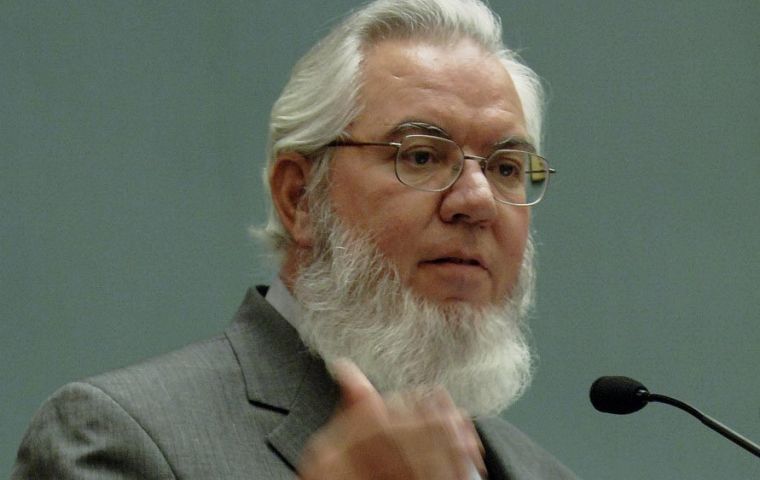MercoPress. South Atlantic News Agency
Labour market recession ‘worsening’; recovery delayed until 2015
 ILO Director-General Juan Somavia.
ILO Director-General Juan Somavia. A new report by the research arm of the International Labour Organization (ILO) says a long “labour market recession” is worsening the social outlook in many countries.
The new study entitled “World of Work Report 2010 – from one crisis to the next?” acknowledges that three years into the crisis, the global economy has resumed growing, with some countries witnessing encouraging signs of employment recovery – significantly in emerging economies in Asia and Latin America.
However, the report by the ILO’s International Institute for Labour Studies also warns that “despite these significant gains ... new clouds have emerged on the employment horizon and the prospects have worsened significantly in many countries”.
The ILO study says that, if current policies persist, a recovery in employment to pre-crisis levels will be delayed until 2015 in advanced economies, instead of 2013 as it projected one year ago.
At the same time, the report says, while employment in the emerging and developing countries has resumed growing, over 8 million new jobs are still needed to return to pre-crisis levels in those countries.
“The longer the labour market recession, the greater the difficulties for jobseekers to obtain new employment,” the ILO report says. “In the 35 countries for which data exists, nearly 40 per cent of jobseekers have been without work for more than one year and therefore run significant risks of demoralisation, loss of self-esteem and mental health problems. Importantly, young people are disproportionately hit by unemployment.”
“Fairness must be the compass guiding us out of the crisis,” said ILO Director-General Juan Somavia. “People can understand and accept difficult choices, if they perceive that all share in the burden of pain. Governments should not have to choose between the demands of financial markets and the needs of their citizens. Financial and social stability must come together. Otherwise, not only the global economy but also social cohesion will be at risk.”
Among the key findings of the new ILO study based on data from some 150 countries:
Cases of social unrest related to the financial and economic crisis have been reported in at least 25 countries – many of them in advanced economies. In some recovering emerging economies, social unrest over the level of wages and working conditions has been registered.
Many countries that experienced positive employment growth at the end of 2009 are now seeing a weakening of the jobs recovery. At the same time, the report says that by the end of 2009, more than four million jobseekers had stopped looking for work in the countries for which information is available.
In more than three-quarters of 82 countries with available information, peoples' perceptions of their quality of life and standard of living declined in 2009 compared to similar data from 2006.
Even among people with jobs, satisfaction at work has deteriorated significantly with a sense of unfairness growing in 46 of 83 countries.
In 36 of 72 countries, people have less confidence in governments now than prior to the crisis.
The study provides new evidence to support the conclusions of a historic joint ILO and International Monetary Fund (IMF) conference held in Oslo on 13 September to discuss challenges of growth, employment and social cohesion. The study data underscore the urgency of implementing calls by the Conference for placing employment creation at the heart of the economic recovery, and making full employment a key macroeconomic objective alongside low inflation and sound fiscal policies.




Top Comments
Disclaimer & comment rulesCommenting for this story is now closed.
If you have a Facebook account, become a fan and comment on our Facebook Page!